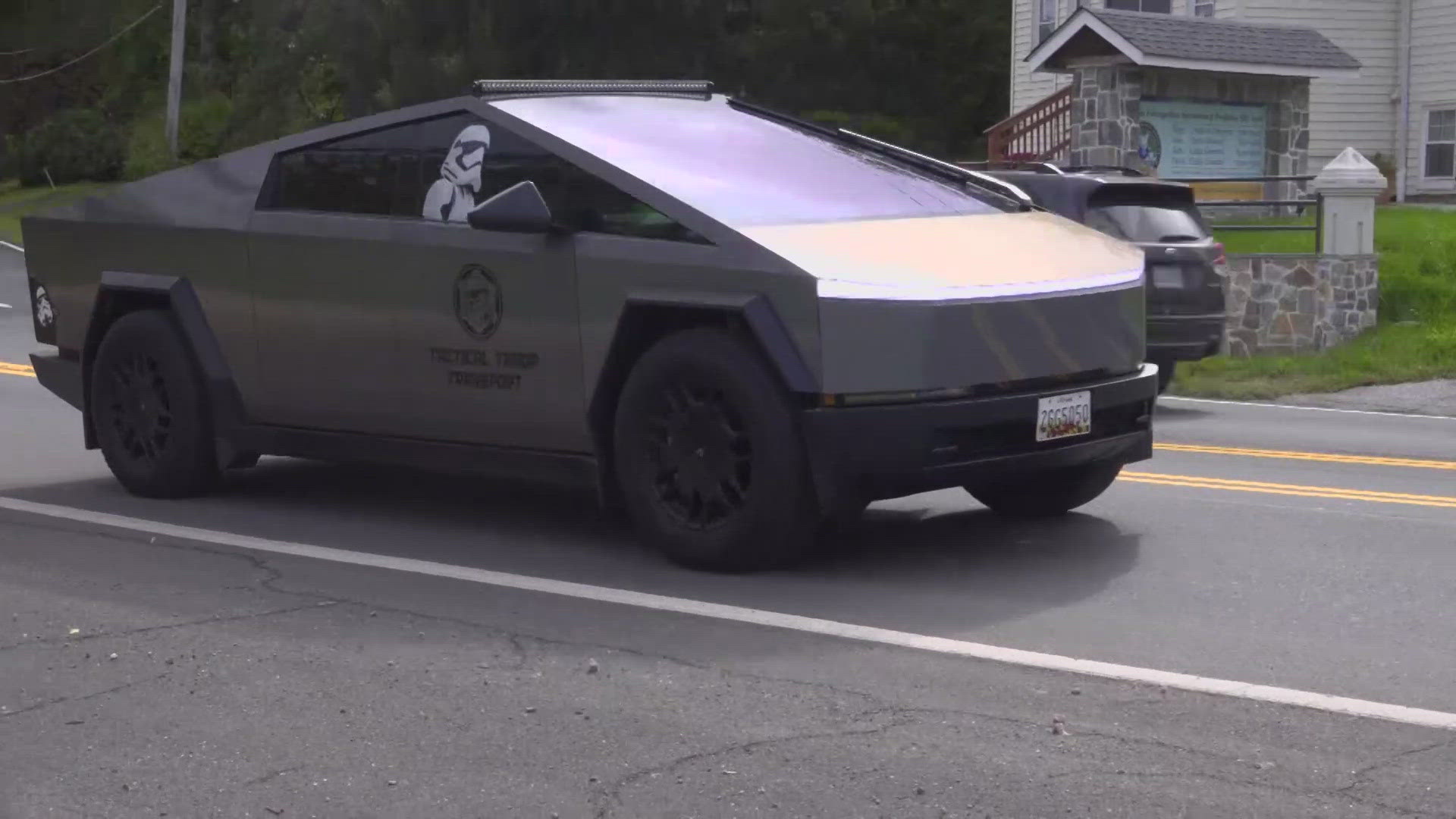POOLESVILLE, Md. — At least 25,000 plug-in electric vehicles (EVs) are now on the road in Montgomery County, according to an analysis of state car registration data.
The county is home to more EVs than any other jurisdiction in Maryland, the data also showed. Howard County has fewer electric vehicles overall, but boasts the highest percentage in the state, with 3.28% of registered vehicles being EVs.
Meanwhile, Maryland is in the top 12 of U.S. states for EV adoption, with nearly 12% of the new car market taken by EVs, according to federal data and market analysis published by Edmunds.
“It's so nice just to go home, plug in and every day to get pretty much full charge, and you never go to a gas station, said EV enthusiast, JD Taylor of Poolesville. "There's very little maintenance on it. It just keeps getting better and better."
Taylor owns a Tesla sedan and one of the new Tesla Cyber Trucks. He is a member of Poolesville Green and organizes the National Drive Electric event hosted during the town's Poolesville Day celebration. Some of the power for his vehicles is generated by solar panels on his roof.
The town government of Poolesville runs entirely on a solar panel farm, and provides four free EV charging stations. Poolesville also aims to be carbon neutral by 2027, according to a recently passed resolution.
County Executive Marc Elrich said he is committed to pushing the county forward toward fleet electrification as fast as possible. Elrich is the owner of an EV Ford Mustang, and his official county-owned vehicle is now an EV Chevrolet Blazer that went into service Oct. 1.
“I'm a believer that climate change is real, and that without electrification of as much of the built infrastructure and the things we use as possible, we're going to continue to face a worsening climate condition," Elrich said during an interview while riding in the new electric car. "We've already pushed it too far."
Elrich says the biggest obstacle to EV adoption remains the lack of a robust charging network. Montgomery County has cleared away some permitting roadblocks to make it easier for residents to install accessible charging at home, Elrich said.
"The county is letting people put charging stations in that patch of land that might be the county right of away between the curb and the sidewalk," Elrich said. "We're allowing people to do this now."
EV experts say the choice to go with an electrict vehicle still involves personal calculations on gas savings and tax breaks, versus upfront costs and overcoming anxiety about range and battery life. But studies cited by the U.S. EPA say over their lifetimes, EVs generate less greenhouse gasses and cost less than internal combustion cars, even accounting for power generation and battery manufacturing.
The District of Columbia ranks second behind California in the ratio of EVs on the road per 100,000 vehicles registered, according to federal data.

